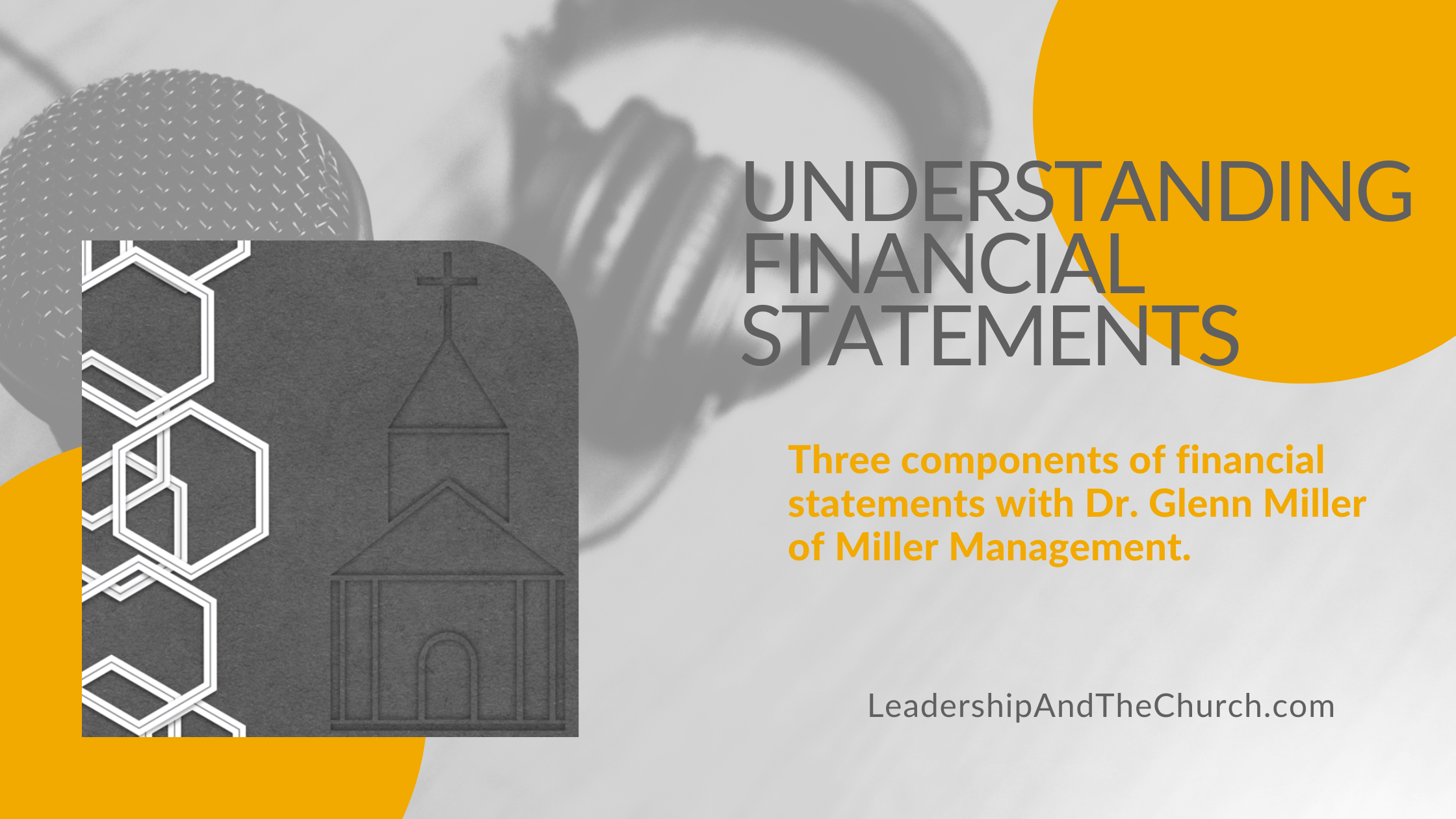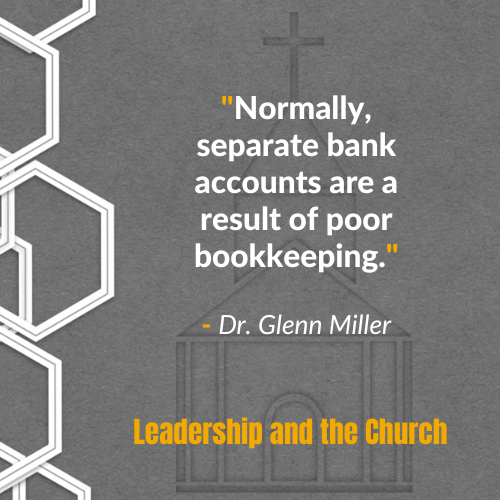March 09, 2023
Three Components of Quality Financials

This post was originally posted on the Leadership and the Church website. But we thought it was too good not to share here. Keep reading for the highlights, or listen to the full episode here:
Why is it important to have well prepared financial statements? And why do we need to know how to read and understand those financial statements as a non-financial person? Those are just some of the questions we will answer over the next few episodes.
The first episode in this series was about the benefit of hiring outside help. The second week focused on what format a church should be using for your financial statements. This episode we tackle the three components of statements for technical data. Last up, charts & graphs.
Are complete financial statements necessary?
Why do we need a full set of financial statements? The first thing is Stewardship: “the job of supervising or taking care of something, such as an organization or property.”
The second, is being able to make future decisions. For the current year, and also the next few years to come. What is God asking us to do? And do we have the funds to do that?
The last thing is Common Sense. How do we know what is going on, without the data to tell us?
What Do Quality Financials Look Like?
We’re so glad you asked! This episode is dedicated to three components: the Balance Sheet, the Statement of Activities, and the Statement of Net-Assets with Restrictions and Designations. Let’s dive right in.
1. Balance Sheet
The first component is the Balance Sheet, which is a point in time document. As of this date, this is what we own, this is what we owe, and how much we have left over. Importance of this component: Shows the value or net-worth of your ministry.
The things that should show under assets are the actual assets that have current value: cash, CDs, buildings, renovations. Don’t make it too long.
2. Statement of Activities
Up next is the Income Statement or Profit & Loss Statement or maybe the Budget Statement. This report shows a period in time, usually over a month.
In the Income side is where unrestricted giving, general offerings, the things that flow into the church and then flow out in expenses. The expense report shows all general expenses each monthly utility bill, payroll, etc.
This report can be complex or simple, but make sure you don’t have so much that you can’t monitor and manage each item, each month. It doesn’t need to be a history report, it still should be easy to read. Tells the story, but easily digestible.
3. Statement of Net-Assets with Restrictions and Designations
(Try to say that three times fast!) The Statement of Net-Assets with Restrictions and Designations report contains all the gifts that were restricted by donors or designated by boards. This report includes beginning balances, any money that came in – or out – and the ending balance for each month; and the total for the fiscal year. This report is very crucial to make sure that the funds are being used for their intended purpose, and nothing else.
This can be a complicated subject, we know. That’s why we wrote this post about it: Designated Giving vs. Restricted Giving – what’s the difference?
Again, the only way money can be restricted (or unrestricted) is by donor giving – in writing. Board designated funds are technically unrestricted, they can store the money for this purpose. But this money can be used on anything – so it is really unrestricted with designation. The board can change their mind, and decide that the money they originally set aside for maintenance could be used for missions instead, for example.

“Normally, separate bank accounts are a result of poor bookkeeping.” – Dr. Glenn Miller
Next Steps for Quality Financials

If your church or non-profit is struggling to find the help it needs, you are not alone. Let Miller Management partner with your on your financial journey. Some next steps may include the following:
- Miller Management’s Accounting Services
- Outsourcing blog series
- Upcoming Trainings at Miller Management
- Keep listening to the LATC podcast
Stay Connected